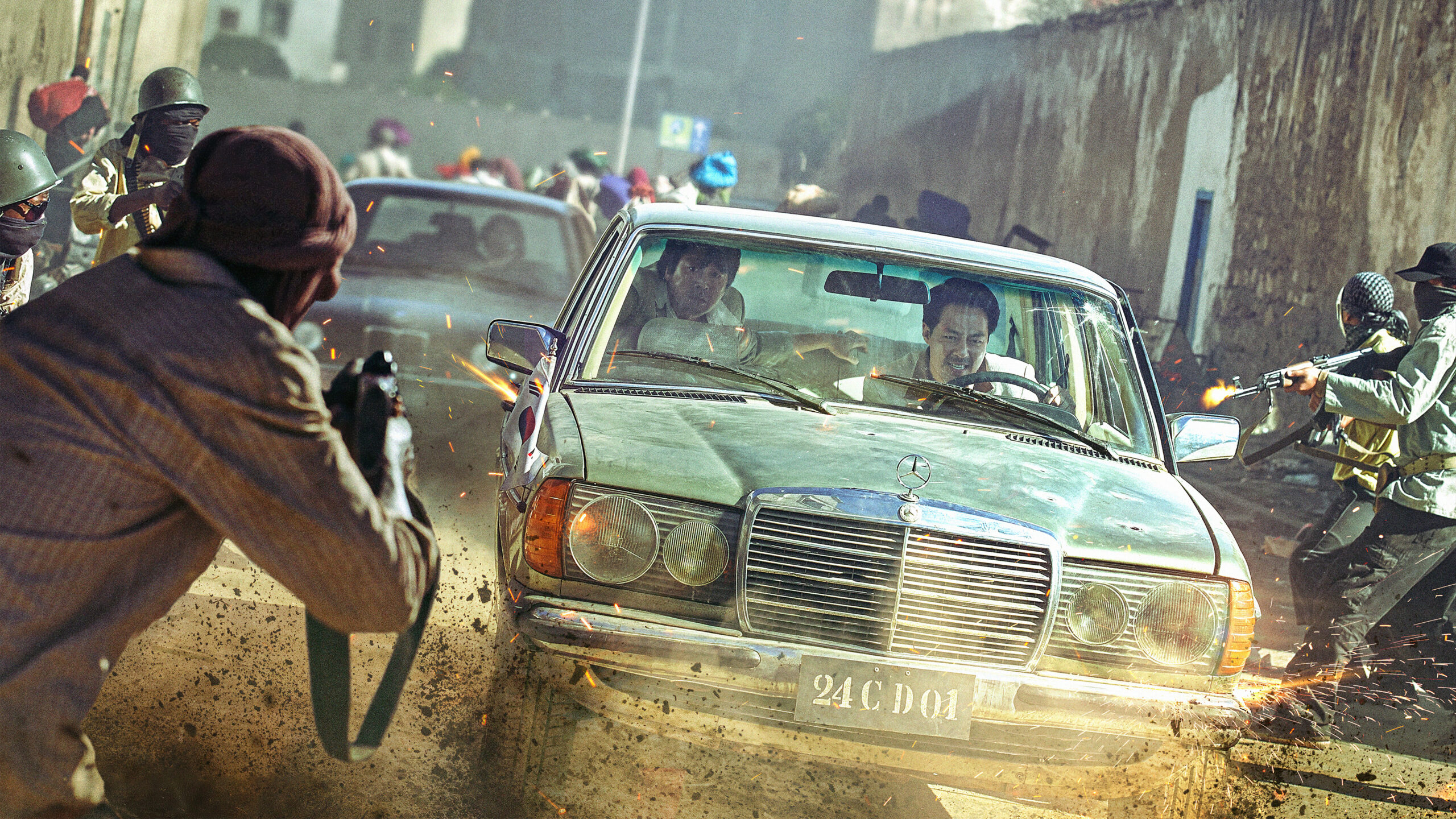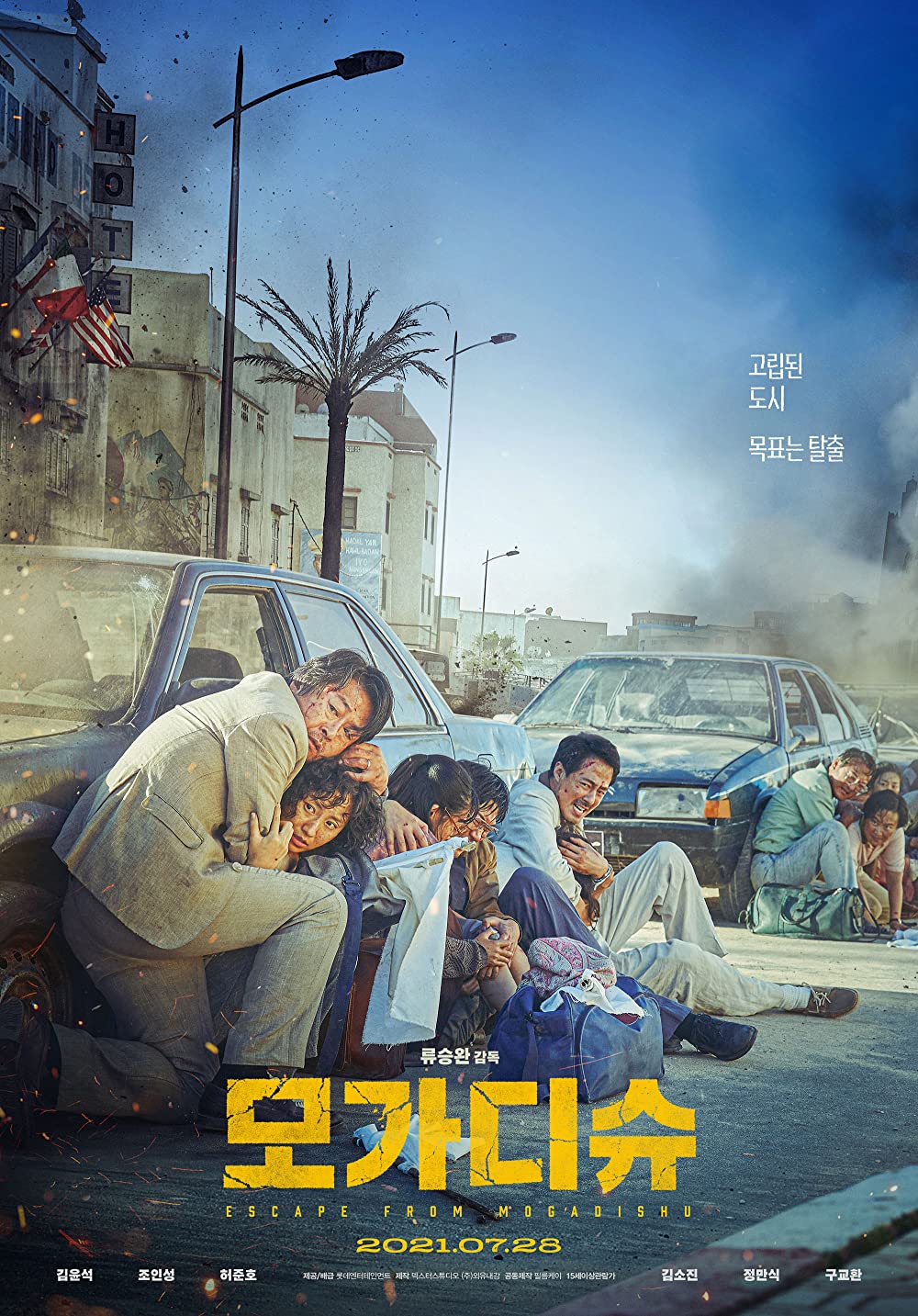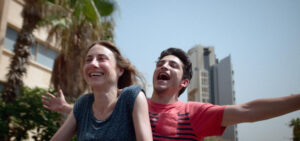
The uneasy equation between South Korea and North Korea has forever been a matter that generated immense amounts of curiosity. South Korean filmmaker Ryoo Seung-wan’s Escape from Mogadishu, set in 1991, presents a helpless scenario where both parties unwillingly join hands for a common cause – to escape a civil war-struck Somalia.
The story unfolds through a South Korean lens. Rookies in cracking a healthy, diplomatic relationship with the poverty-struck African nation, South Korea hilariously arranges alcohol for its ruler. Before we would witness a ballistic turn of events at the king’s residence, the film assumes itself to be a delicious black comedy – where the ambassador Han Sin-seong (Kim Yoon-seok) and his associate are hilariously robbed. Seung-wan, in a matter of minutes, sets the tone to the chaotic, unpredictable journey that Escape from Mogadishu sets out to be. Becoming the right hand to Han is the ANSP intelligence officer Kang Dae-jin (Jo In-sung) whose temper contains the ferocity to burn down the city which is on the verge of a breakdown.
A massive civil war erupts. It disrupts public lives, electricity is cut off, and rebels are all over the lanes throbbing bullets left, right, and center. At the epicenter of this pandemonium is the massively inexperienced South Korean embassy that houses a slew of staff and family members including children. Facing barriers of language and an absolute lack of local support and general know-how, the team is at the pinnacle of what must be their biggest setback. This is the juncture when a group of diplomats from the embassy of North Korea seeks asylum at their office-cum-residence. Will humanity rank over ideas of nationalism? How hard will it be to empathize with each other to work towards a common goal? Ryoo Seung-wan poses tough questions and addresses them one by one.
Towards the third act, Escape from Mogadishu begins to fully evolve into a suspenseful action thriller. We know the key characters almost inside out and what are their basest behavioral traits and needs. If the locals (rebels and the law enforces) are portrayed with giant traces of negative shades, we sense a natural sense of apprehension whenever the South Koreans interact with the suspicious North Koreans. The latter is visibly unsure to consume the food offered by Han and his team, and they get their fill only after the ambassador himself takes a bite from their traditional enemies’ plates. Another angle that the film examines is Kang’s restless, volatile attitude towards his North Korean equivalent, Tae Joon-ki (Koo Kyo-hwan). The brief action sequence that ensues between the two and the eventual discussion between Han and his DPRK counterpart Rim Yong-su (Heo Joon-ho) provides mammoth insights into how strongly indoctrinated is their abhorrence towards each others’ motherlands.

Escape from Mogadishu does not leave much scope for the supporting cast. However, the slight altercations and moments of tenderness they share with those from the warring party communicate how we breed within ourselves the power to be kind. Seung-wan’s screenplay – even though originating from a true story – makes sure to add magnificent strokes of a certain cinematic weightiness that makes Escape from Mogadishu a riveting experience.
The rip-roaring climactic segment where both fleeing parties drive as a convoy to the Italian embassy in cars stacked with books and clothes (to escape bullets from the locals) is a nail-biting chapter. The gunfights, especially in this part, feel too real to take our eyes (and ears) off the screen. Many lives are at stake and the opposite party – both old, adolescent, and young – roams the streets (which belongs to them, after all) with loaded guns to blare at possibly any vehicle that drives past them.
This way, the action sequences in Escape from Mogadishu end up mighty enough to give some of the Hollywood actioners a mega run for their bucks. Its scale might be low but the film scores big as it approaches the heightened drama in the screenplay with a well-developed emotional core. Seung-wan’s conscious decision to design the thrilling like a mainstream Korean action saga easily spices up to make his film an immersive experience.
The ensemble cast does exceedingly well in convincing us of the outrageous turn of events in Escape from Mogadishu. The perplexed (and diabetic) main leads Kim Yoon-seok and Heo Joon-ho are the strongest pillars who hold the film together. Jo In-sung who gets a great deal of screen-time is fantastic as he brings out his volatile persona to perfection. Shot magnificently by Choi Young-hwan, the film also boasts of a soundtrack (Bang Jun-seok) that keeps the ongoing tension duly maintained.
My favorite chapter in the film, however, would be the parting shot. It is humane, compassionate, and is bound to make your eyes well up for the right reasons. Escape from Mogadishu, in its method to portray an unusual friendship between two nations, speak volumes on how benevolence stands way ahead of matters such as politics, diplomacy, and bureaucracy. If only the emotions scattered across the film spill onto the psyches of legions of citizens who inhabit the two nations.
Rating: ★★★★

